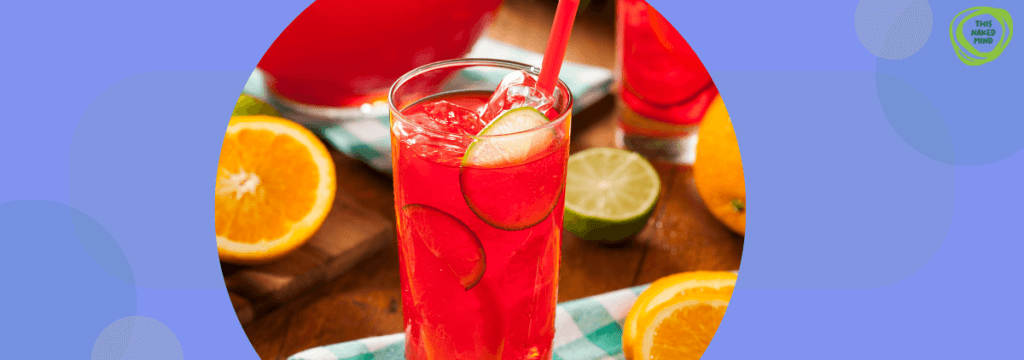
Overcoming Mommy Wine Culture: A No-Judgment Guide to Breaking Free
Did you know that alcohol-related deaths among women increased by 85% between 1999 and 2017? That’s a staggering statistic, and it shines a harsh light on the impact of mommy wine culture. The glossy memes and cutesy slogans make it seem harmless—just a fun way to take the edge off a long day. But behind the jokes, many women are struggling in silence. Overcoming mommy wine culture isn’t about shame or judgment—it’s about empowerment. At This Naked Mind, we believe in a science-backed, compassion-driven approach that helps women feel good about themselves and their choices. No labels. No guilt. Just a community that understands and supports you.

TLDR: Breaking Free from Mommy Wine Culture
- Women-targeted alcohol marketing has created a harmful “mommy wine culture” that normalizes drinking as a coping mechanism for motherhood stress
- Women process alcohol differently than men, facing greater health risks including increased mortality rates
- Children observe and often adopt their parents’ coping mechanisms, making this a multi-generational issue
- Changing your relationship with alcohol doesn’t require labels or deprivation—it’s about understanding unconscious beliefs and finding better alternatives
- This Naked Mind offers science-backed, judgment-free resources like The Alcohol Experiment and support communities to help women reclaim healthier coping strategies
In this post:
Wine Mom Memes: More Than Just Harmless Fun
The Real Health Risks for Women
Needing Wine to De-stress
Signs Mommy Wine Culture Is Affecting You
Impact on Children
Overcoming Without Feeling Deprived
Handling Social Drinking Situations
Long-term Benefits
Changing Ingrained Habits
Final Thoughts: Saying Yes, Not No
Q: “Wine mom” memes are everywhere. Is it really that big of a deal?
A: It might seem like harmless fun, but the “wine mom” trope normalizes and even glorifies excessive alcohol consumption, especially for women juggling the pressures of motherhood. Research published in the Journal of Studies on Alcohol and Drugs indicates that societal norms play a significant role in shaping drinking behaviors. When we constantly see images and messages that link wine with relaxation and coping, it becomes harder to recognize potential problems. During Women’s History Month, it’s crucial to acknowledge how these cultural narratives impact us. We’re not saying you can never enjoy a glass of wine, but we’re asking you to consider the underlying messages and how they might be affecting your relationship with alcohol.
“What began as playful marketing has evolved into something more insidious,” explains Annie Grace, founder of This Naked Mind. “Alcohol companies have strategically targeted women, particularly mothers, with messaging that positions wine as self-care, a reward, and a personality trait.”
This trend isn’t coincidental. Alcohol marketing to women has increased dramatically in recent decades, with brands specifically creating products and campaigns that appeal to mothers. Wine companies know that creating a cultural association between motherhood and alcohol consumption creates lifelong customers.
Q: What are the real risks of women and wine culture? I thought we process alcohol differently than men?
A: You’re right. Women’s bodies metabolize alcohol differently. Studies show that women generally have lower levels of the enzyme dehydrogenase, which breaks down alcohol. This means alcohol stays in our systems longer, increasing the risk of liver damage, heart disease, and certain cancers. According to the National Institute on Alcohol Abuse and Alcoholism (NIAAA), women are more susceptible to alcohol-related health problems than men, even when consuming less. The focus on alcohol marketing to women especially creates a higher risk for women. Let’s be real, those cute wine glasses and “mommy juice” t-shirts aren’t doing us any favors.

Q: I feel like I need wine to de-stress. Am I alone?
A: Absolutely not. Many women feel this way. The marketing around alcohol often positions it as a quick fix for stress. However, as Annie Grace, author of This Naked Mind, points out, “Alcohol actually increases stress over time. It disrupts sleep, throws your hormones out of whack, and depletes your energy.” The initial relaxation you feel is often followed by rebound anxiety and poor sleep, creating a cycle of dependency. This Naked Mind offers programs like The Path that help you understand the psychology behind this cycle and find healthier ways to manage stress.
Q: How do I know if mommy wine culture is affecting me personally?
A: Ask yourself:
- Do you automatically reach for wine after a tough day with the kids?
- Have you noticed drinking more since becoming a parent?
- Do you feel awkward at social gatherings without a drink?
- Have you joked about “needing” wine to handle your children?
- Do you feel conflicted when your children notice or comment on your drinking?
These questions aren’t meant to induce guilt but to foster awareness. Many women in our community describe a sense of cognitive dissonance—knowing alcohol isn’t enhancing their parenting while simultaneously feeling it’s necessary for coping.
At This Naked Mind, we don’t believe in labels like “alcoholic” or “problem drinker.” Instead, we focus on awareness. If alcohol isn’t making you feel good—physically, emotionally, or mentally—it’s worth exploring why.

Q: How does mommy wine culture affect our children?
A: Children are remarkably perceptive. When they consistently see adults reach for alcohol in response to stress, it shapes their understanding of coping mechanisms.
A longitudinal study by the National Institute on Alcohol Abuse and Alcoholism found that children whose parents used alcohol as a visible stress-relief tool were more likely to adopt similar patterns in adolescence and adulthood.
“Children learn more from what we do than what we say,” Annie Grace points out. “When we model healthy coping strategies, we’re giving them lifelong tools for emotional regulation.”
Q: How can I start overcoming mommy wine culture without feeling deprived?
Great news: you don’t have to rely on willpower or deprivation. The key is shifting your mindset. Here’s how:
1. Get curious, not judgmental.
Instead of thinking, I need to stop drinking, try asking, What is alcohol really doing for me? Is it actually relaxing me, or is it just numbing me temporarily? This Naked Mind’s free 30-Day Alcohol Experiment is a great way to explore this in a structured, supportive way.
2. Reframe self-care.
If alcohol has been your go-to escape, it’s time to expand your toolkit. What truly relaxes you? Is it a walk with a podcast, a solo trip to Target, or a weekly yoga class? Making time for yourself in ways that nourish rather than deplete is game-changing.
3. Find your people.
One of the biggest fears women have about cutting back on alcohol is losing social connections. The truth? The right people will support you, and you’ll likely form deeper, more meaningful relationships in the process. Join alcohol-free communities like the This Naked Mind Companion App or connect with sober-curious groups online.
Q: How can I handle social situations when everyone else is drinking?
Social pressure is real, but you’ve got options:
- Own your choice. Confidence is key. A simple “I’m good with this tonight” often ends the conversation.
- Have a go-to alcohol-free drink. Try a fancy mocktail, kombucha, or an alcohol-free wine.
- Redirect the conversation. If someone pushes, shift the topic: “Have you watched that show everyone’s talking about?” Works like a charm.
Remember, most people are too focused on their own drinks to care what’s in your glass.
Q: What are the long-term benefits of ditching mommy wine culture?
The perks are endless:
- Better sleep. Alcohol disrupts deep sleep, so cutting back often leads to feeling more rested.
- More energy. Less alcohol = less fatigue and brain fog.
- Improved mood. Alcohol is a depressant. Reducing it can lead to better mental clarity and emotional stability.
- Healthier relationships. You’ll be more present, connected, and engaged with your loved ones.
- A powerful example for your kids. They’re always watching. When they see you handling stress without alcohol, it teaches them healthy coping mechanisms.
Q: Is it really possible to change deeply ingrained habits around alcohol?
A: Absolutely. Neuroplasticity—your brain’s ability to form new neural pathways—means habits can be rewired at any age.
“Change doesn’t require willpower or deprivation,” explains Annie Grace. “When you address the unconscious beliefs about alcohol that drive behavior, new choices become natural rather than forced.”
This Naked Mind’s approach leverages science-based techniques that transform your relationship with alcohol at the subconscious level, making lasting change accessible without struggle or feelings of missing out.
Final Thoughts: It’s Not About Saying No, It’s About Saying Yes
Overcoming mommy wine culture isn’t about depriving yourself—it’s about gaining more: more clarity, more energy, more connection, more joy. If you’re even a little bit curious about what life looks like without relying on alcohol, that’s a sign worth listening to. At This Naked Mind, we’re here to support you in exploring this journey with kindness, curiosity, and zero judgment.
Are you ready to take the first step? Check out The Alcohol Experiment or the This Naked Mind Companion App for free resources and a supportive community. Because you deserve to feel good—no wine required.








